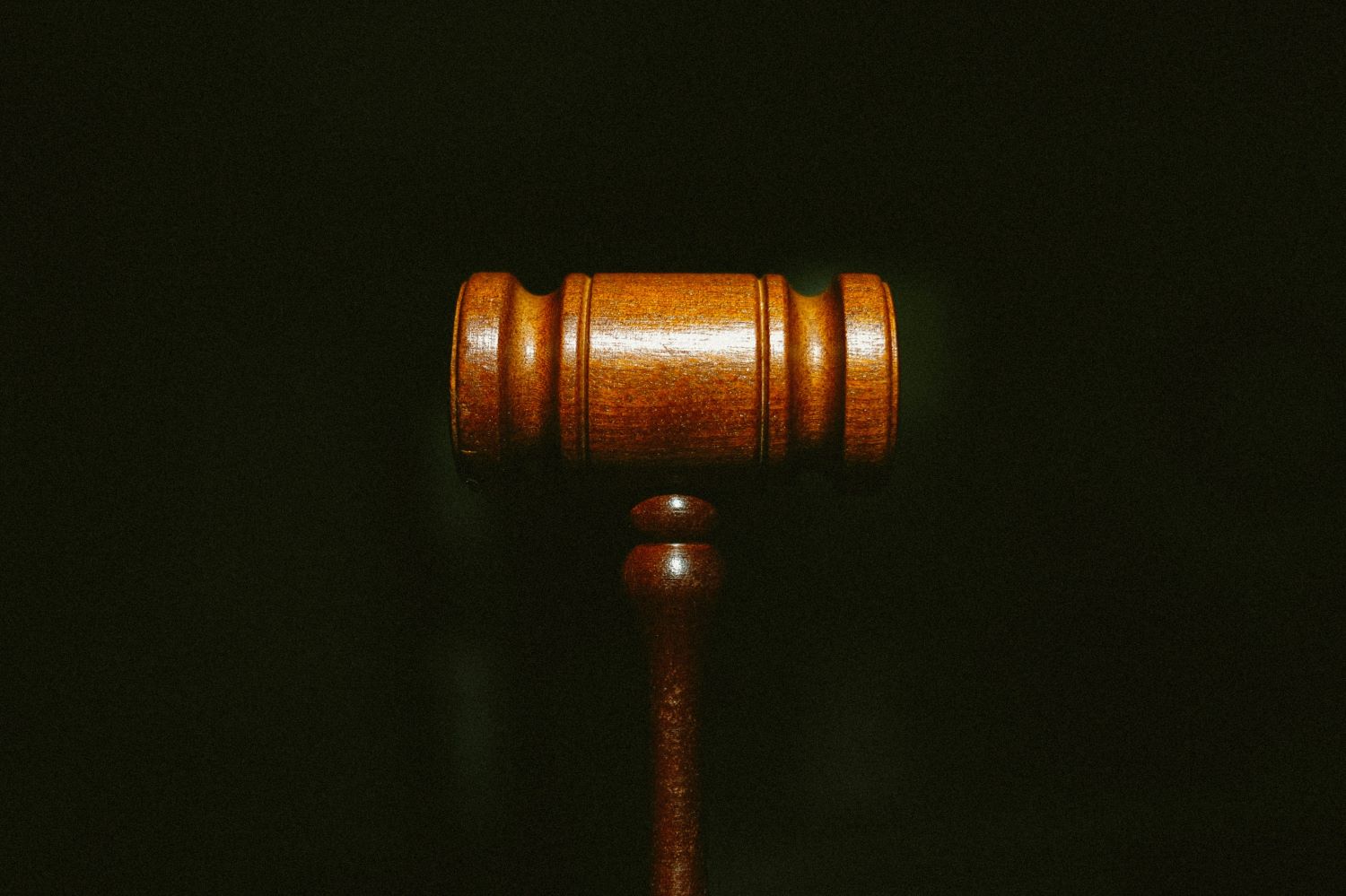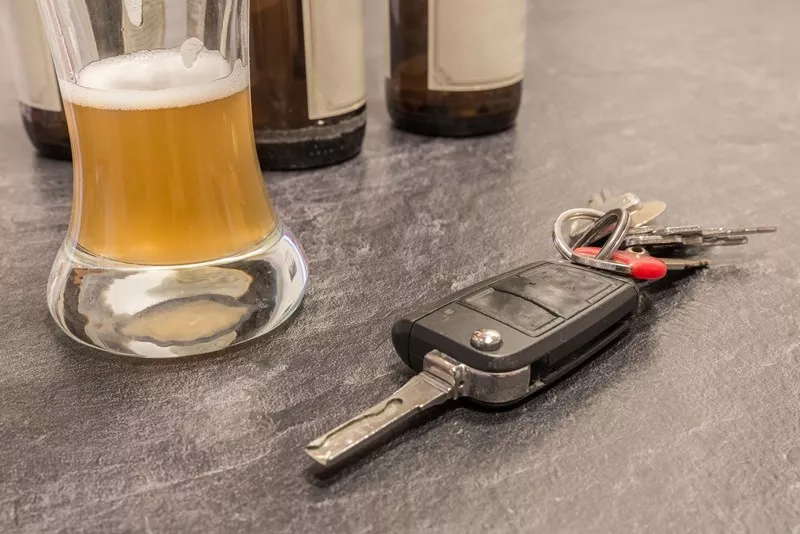Qualifications
- LLB (Hons), University of Otago 2021
- Admitted to the Bar in New Zealand 2022
Community
- Tutor at the University of Waikato
- Volunteer at Baywide Community Law
Contact
- DDI: +64 7 262 0433
- M: +64 27 263 8207
- E: william.caskie@hobec.co.nz
William is a solicitor in Holland Beckett’s litigation team.
William joined Holland Beckett in 2022 after graduating from the University of Otago in 2021 with a Bachelor of Laws (Honours). He maintains a broad litigation practice, with experience covering building disputes, tort claims, regulatory investigations and professional disciplinary matters.
In addition to his civil practice, William regularly appears in the criminal courts. He holds PAL2 approval and has successfully represented his clients in a number of Judge-alone and jury trials. His diverse experience and pragmatic approach make him a valuable advocate across a wide range of legal issues.
Outside of practice William also tutors at the University of Waikato and volunteers at Baywide Community Law.
William Caskie's Expertise
William Caskie's News & Resources

What is a Discharge without Conviction?
Frequently, when a prominent New Zealander is being sentenced for criminal offending, there will be discussions about Discharges without Conviction. Discharges are commonly misunderstood and this article sets out what a discharge is and when it is likely to be available.
A Discharge without Conviction is an Order that Court can make when a person has either pleaded guilty or been found guilty of a criminal offence. Despite the finding of guilt, the Court may consider that the“direct and indirect consequences of a conviction would be out of all proportion to the gravity of the offence”. This language comes from section 107 of the Sentencing Act 2002 which is the current test for a discharge without conviction.
What this means is that there are situations where even a conviction (whether or not a sentence is also imposed) will have consequences for a person that are too serious to be justified by what they have done. This can be either because the offending itself is so minor or because the consequences that the person will face if convicted are so significant. Often, it is a combination of both of these factors that will mean that a discharge without conviction is appropriate.
When deciding whether to grant a Discharge without Conviction, a Court will first determine how serious the offending is. This is referred to as the “gravity of the offence”. The gravity of the offence is more than just the seriousness of the act itself – it also considers how it came about, the personal circumstances of the offending and steps that they have taken subsequently. For this reason, people who are seeking a Discharge without Conviction will often plead guilty and show remorse, both of which help reduce the seriousness of the offending in the Courts eyes.
Once the Court has determined how serious the offending is, the Court will consider the consequences that the person will face if convicted. In very low level cases, the Court may be satisfied that the ordinary consequences of the conviction (things like it being harder to get employment and the shame associated with a conviction) are enough that a conviction should not be entered. More commonly, the Defendant will provide evidence showing that a conviction will have a particularly severe impact on them. This commonly involves the loss of employment, consequences for their immigration status or consequences for their ability to travel in the future.
Courts will not easily be persuaded that consequences are out of proportion to the gravity of offending. Defendants must show both that the consequences are likely to occur and that the impact on them is severe. For things like travel, they will need to show both that they have no path way to continue the travel they had planned and also that the travel is something that they were actually intending to do. This is to prevent people from making speechless arguments that they will be impacted when in reality a conviction will not impact on their life. Likewise claims of employment consequences or immigration consequences will generally need to be backed up by evidence from a person who can comment on the likelihood of those outcomes.
In a handful of cases, defendants have pointed to the impact that it will have on their professional registration status as a reason why they should be discharged without conviction. However, these arguments are commonly rejected. This is for two reasons. First, the Court is always very hesitant to prevent a professional registration body (such as the Law Society, the Medical Council or the Licenced Building Practitioners Board) from considering whether criminal offending has an impact on that person’s ability to fulfill their role. Secondly, in most cases, the professional registration body will follow a detailed process to determine the outcome. The removal of a practicing certificate is far from a foregoing conclusion in these cases, especially where the offending is minor. For these reasons, Courts will usually refuse a Discharge without Conviction solely on these grounds and will require that person to face their professional body to determine the appropriate outcome for their registration.
There are certain kinds of offences where discharges are more difficult to obtain – famously drink driving. This is because the Courts review certain kinds of offending as inherently serious. When this is the case, the Court must be persuaded that there are clear consequences before the Court will be persuaded that Discharge without Conviction is appropriate. It is for this reason that many applications for Discharge without Conviction in cases like this fail.
If a Discharge without Conviction is granted, then the legal effect of this is to treat the person as though they were acquitted of the charge. This means that no sentence can be imposed on them. It also means that they will have no criminal record for any purpose going forward. The Court can, however, order a disqualification from driving or reparations in appropriate cases. It also does not mean that a person is not required to report what has happened to a professional body or a government agency if they have a separate obligation to do so. It does, however, mean that a person does not need to disclose a criminal conviction on job applications or travel applications either within New Zealand or internationally.
For people who are unable to get a Discharge without Conviction, the Clean Slate legislation provides a useful alternative. This legislation means that where a person has been convicted of a relatively minor offending (meaning they were not sentenced to imprisonment and if it is not of a specified class of offenses, such as sexual offending) that person will only have a conviction on their record for 7 years. If at the end of 7 years they have had no further convictions of any kind then they may tell employers and other people within New Zealand that they have no criminal convictions. This legislation only applies in New Zealand however, and so it does not impact on international obligations.
Holland Beckett regularly advises clients on the availability of Discharges without Conviction for a range of offending. Our lawyers have successfully argued discharges for drink driving, minor criminal offences and even offending under the Resource Management Act 1991. If you would like to understand more about this process, please contact one of our legal specialists.

Fencing – rights and obligations for neighbours
Neighbours are commonly grappling with issues about their fences: one neighbour may want to upgrade a boundary fence and the other refuses to pay their fair share, you may find out that your boundary fence is not on the true boundary of your property, or your neighbour may have built a fence which obstructs your view.
Not only does this cause headaches, it can present real problems when you want to sell your property. What may seem like a trivial matter can turn into a lengthy and expensive dispute – often at the expense of your good neighbourly relationship. It is therefore important to know your rights and obligations when it comes to fences.
Fencing Act 1978
Property owners can enter into agreements or covenants regarding fencing matters, which may be registered against the title of a property. If that happens, subsequent owners would be bound by the agreements, and future grievances could be avoided. However, if an agreement has not been reached, most of the law relating to fences is contained in the Fencing Act 1978.
Building or repairing a fence – who bears the cost?
Fences should generally be on a boundary line, and the cost of erecting, maintaining or relocating a boundary fence shared equally between the neighbours. You can compel your neighbour to share the cost under the Fencing Act, provided certain procedures are followed.
There are some exceptions, however, such as where one neighbour damages the fence: they cannot then expect the other neighbour to pay half the cost of repair. Another example, common in some new subdivisions, is where there is an agreement or covenant on the title exempting an owner (usually the developer) from contributing to the cost of a fence.
Replacing a fence - is the fence adequate?
Your neighbour will only need to contribute to the cost of replacing a fence if the existing structure is not already “adequate” (meaning of a nature, condition and state of repair reasonably satisfactory for the purpose it serves or is intended to serve). Whether or not an existing fence is “adequate” will depend on a number of factors, including the location of your property (rural or residential) and the nature of the fence (hedge or wall). However, your own personal desires or expectations are not normally relevant. If there is a dispute about whether the existing fence is “adequate” it may be necessary for the Disputes Tribunal to determine the issue.
What if it is not in the right place?
Disputes surrounding boundary fences can become complex. A formal survey is usually required to identify the parts of the adjoining properties that are incorrectly marked by the fence. If a fence is not on the true boundary, one party may decide to build another fence on the boundary line, and the other party may be liable for half the cost.
Or, if a fence encroaches one neighbours property, they may require the fence to be relocated. This can become a real issue where one party wants to sell their property. If the parties cannot agree to relocate the fence, the affected neighbour may apply to the Court for an order to remove or alter the fence which adversely impacts their land.
Procedures
Whether or not your neighbour agrees to your proposal to repair, replace or erect a fence, you must issue a fencing notice. A fencing notice puts your neighbour on notice of the proposed work and costs, and you must give them 21 days to respond. If your neighbour does not respond to the fencing notice within that time, you may commence the work and your neighbour can’t object later.
If you fail to give your neighbour notice of your proposed work, you could be liable to pay for the costs of the fence yourself. There are some exceptions to this, such as if immediate work is required as a result of a fence damaged or destroyed by an accident.
It is always important that you identify and notify the correct person: either the owner of the property, or an occupier by virtue of a tenancy not less than 10 years. This can be complicated if the neighbour is a unit title or cross lease.
If the correct procedure is not followed, you may find yourself having to pay the full costs of the fencing work, or having to apply to the Court to help resolve the issue. To avoid this, we recommend you seek legal advice before issuing a notice or starting fencing work.
Holland Beckett has experience in fencing disputes and would be happy to provide you with our advice on your situation. For example, we can assist with drafting fencing notices, lodging claims in the Disputes Tribunal or District Court, and providing general advice on your liability to pay the costs for an adjoining fence.

Charged with drink driving – what now?
In New Zealand, drink driving is known as driving with excess breath/blood alcohol, or an EBA offence. The penalties that apply to EBA offences vary depending on the age of the offender, the level of breath/blood alcohol detected, and whether there has been previous offending of the same or a similar kind.
Adults
The legal limit for adults (over 20 years old) is 400 micrograms (mcg) of alcohol per litre of breath, or 80 milligrams (mg) of alcohol per 100 millilitres (ml) of blood. If a person’s breath or blood alcohol level exceeds these limits, this is a criminal offence and carries the risk of conviction. Criminal convictions result in a criminal record which can have implications for employment and travel. It should be noted that breath/blood alcohol readings that are less than these limits can still amount to an infringement offence, incurring a fine of $200 and 50 demerit points.
In the case of a first or second EBA offence, the Police can elect to prosecute. If convicted, an offender could be jailed for up to three months or fined up to $4,500. The offender will automatically be disqualified from driving for a minimum period of six months. For first time offenders, imprisonment is unlikely and a fine will usually be proportionate to how far over the limit they were (e.g. EBA of 500 mcg equals a fine of $500).
In the case of a third or subsequent EBA offence, the penalties become more serious. A repeat offender can be jailed for up to two years, or fined up to $6000, and will be automatically disqualified from driving for at least one year. Custodial sentences are not uncommon for recidivist drink driving.
Youth
For anyone under 20 years of age there is a zero alcohol limit. It is a criminal offence for a person under 20 years old to drive with more than 150 mcg of alcohol per litre of breath, or 30 mg per 100 ml of blood. This offending is treated in the same way as adult offending. A breath alcohol content between 0 and 150 mcg is an infringement offence and will result in a $200 fine and 50 demerit points.
Alcohol Interlock Licence
An offender who has received an EBA conviction within the last five years, or where the breath or blood alcohol reading is particularly high (more than 800 mcg, or 160 mg), will likely be sentenced to an alcohol interlock licence. This means once the period of disqualification is complete, they will need to pay to have their vehicle fitted with an alcohol interlock device for a minimum period of 12 months. This will prevent them from starting their vehicle until they have blown into the device and produced a zero alcohol reading.
Zero Alcohol Licence
Upon successfully completing an alcohol interlock sentence (and in some other limited circumstances), an offender will be eligible to apply for a zero alcohol licence. These licences are imposed for a period of three years, and as the name suggests, do not permit the consumption of any alcohol prior to driving, regardless of age. The three year period does not run concurrent with any period of suspension or disqualification, but begins from the end of this period.
It is important to note that upon the expiry of an interlock or zero alcohol licence, a person will be unlicensed. It will be necessary to go through the usual process of obtaining a new licence, including sitting the theory and practical tests.
Limited Licences
Once convicted of driving with EBA and disqualified from driving, it might be possible to make an application to the court for a limited licence, sometimes referred to as a ‘work licence’. To obtain a limited licence it is necessary to demonstrate disqualification from driving will result in extreme hardship to the applicant, or undue hardship to another (usually an employer or dependent family member). For example, where an applicant is required to drive for work and their disqualification means they will not be able to carry out their job. This could result in undue hardship to the applicant’s employer if they are unable to replace the applicant in their role and are left with no one to carry out the job. Or where other employees are diverted from their roles to cover for the applicant or drive them around, at a cost to the employer. Where it is not viable for an employer to continue employing the applicant as a result of their disqualification, this could result in undue hardship to the applicant’s family in situations where they are financially dependent on them. Undue hardship to family members could also arise where the applicant is the sole or designated caregiver and is required to drive in order to care for dependent family members.
A limited licence will only allow an applicant to drive for a limited purpose, such as for work, and will be subject to conditions including restrictions on the hours, days and area in which they can drive.
For EBA offences, there is a mandatory stand-down period of 28 days from the date of disqualification before the court will consider an application. If a limited licence is required, it is best to get in touch with a lawyer as soon as possible following a conviction to discuss making an application.
Once the period of disqualification has ended, a new licence will need to be obtained, as the old licence will have been cancelled. If the period of disqualification was less than 1 year, then it is simply a matter of applying to have the licence reinstated. If the period of disqualification was more than 1 year, it will be necessary to re-sit the theory and practical licensing tests again in order to requalify for a licence.
The Litigation team at Holland Beckett has experienced criminal lawyers who would be happy to provide advice in relation to EBA charges and assist with making an application for a limited licence. Please don’t hesitate to get in touch.

Vehicle disputes
Have you recently purchased a vehicle that has turned out to be a lemon? You may have more protection than you think.
Purchasing a new vehicle can be an exciting but daunting process. Finding a suitable model for a reasonable price in a second-hand market that can be littered with lemons can be a feat within itself. In a perfect world, all purchasers would carry out due diligence by getting a pre-purchase inspection from a third party to avoid inheriting someone else’s headache.
However, buying from a reputable dealership or a charismatic salesman can easily deter the desire to obtain a second opinion. In any case, defects or botched repairs are often well hidden, and only reveal themselves once ownership has already been transferred.
Purchasing From a Dealership
Generally, when a vehicle is purchased from a dealership the purchaser is afforded the protections contained in the Consumer Guarantees Act 1993 (CGA) and the Fair Trading Act 1986 (FTA), as well as any express warranty that may be present.
The FTA prohibits suppliers from engaging in conduct that is misleading in deceptive. A common example of this conduct is selling vehicles with tampered odometers or with hidden accident histories.
The CGA guarantees that goods are “fit for a particular purpose” and are of acceptable quality. Determining whether any given issue constitutes a breach of these guarantees depends on the nature of the situation. For example, when an older vehicle may require repairs, it may be acceptable, whereas newer vehicles are held to a higher standard.
If there is a breach of these guarantees, the purchaser has two options:
If the defect can be remedied, the consumer can require the supplier to repair the goods. If the supplier refuses or fails to fix the problem, the consumer can “reject” the vehicle or elect to have the problem fixed elsewhere at the original supplier’s expense.
If the defect cannot be remedied or if it is of a substantial character, the consumer may “reject” the vehicle or request compensation for the reduction in the value of the vehicle.
“Rejecting” the goods would involve returning the vehicle to the supplier; outlining why it isn’t fit for purpose or of acceptable quality. From there, you are entitled to elect a refund or a suitable replacement of a similar value.
Motor Vehicle Disputes Tribunal
Car dealerships are usually reluctant to take back faulty cars that they have sold. This is where the Motor Vehicle Disputes Tribunal (MVDT) comes in. The MVDT is an effective and affordable forum to hear vehicle-related disputes. The MVDT can determine claims up to $100,000. However, they can only review sales by registered traders.
An Adjudicator from the MVDT will hear both the seller’s and the purchaser’s evidence regarding the defective vehicle. They will then determine whether the seller has breached their obligations under the FTA and CGA. This often involves the tribunal ordering the seller to refund the purchase price of the defective vehicle.
The application process is user-friendly; the application fee costs only $50. Application forms can be found on justice.govt.nz. You are not required to retain a lawyer to make a claim.
Auctioneers
Extra care must be taken when purchasing from auctioneers. As the auctioneer only acts as a facilitator of the transaction, the CGA protection does not apply. As a result, the MVDT has in the past refused to make orders in favour of purchasers of faulty vehicles from auction houses.
Private Sales
Purchasers of vehicles from private sellers, often from popular online sites, are not covered by the protections of the CGA or FTA. Nonetheless, similar protections are found in the Contract and Commercial Law Act 2017 (CCLA). There, a purchaser of a vehicle may make a claim against the seller for a misrepresentation that has induced them into the purchase.
Making a claim under the CCLA can be a costly exercise and difficult to prove. The Disputes Tribunal offers a more economical solution. The process is informal and affordable, like the Motor Vehicle Disputes Tribunal, but limits the value of any claim to $30,000.
The Civil Litigation and Dispute Resolution team at Holland Beckett would be happy to help you with any advice concerning any vehicle dispute concerns you may have.

When things go wrong – our criminal practice
Being arrested or summonsed to Court can be a life-changing process. Having to navigate an unfamiliar process and make decisions, often under time pressure and sometimes with public scrutiny, is hugely stressful. But having the help of experienced, knowledgeable advocates who can navigate both the law and the emotional journey of the Court process makes a difference.
A criminal conviction can have a profound impact on a person’s life. Even putting aside the risk of prison, fines, home detention, and similar that can result, employment consequences often follow in even minor cases. So too do restrictions on travel, stress on family relationships, difficulties getting around, and public attention.
A good criminal lawyer should go beyond helping their client negotiate questions of guilt and innocence. They should understand their client’s goals in terms of all these varying factors, and help their client make the decision that best serves these needs.
Who needs a criminal lawyer?
The circumstances that bring people to the criminal courts are just as varied. Many common offences, such as drink driving and other licensing issues, are well-known and may well be what people think of when they hear the word “criminal”.
But there are thousands of criminal offences on the statute books. The directors of companies, business people, those with health and safety obligations, people who use resource consents, and anyone who pays tax can equally find themselves facing prosecution if things go wrong.
So too can the recreational fisherman who misjudges his catch, the student out on the town with an open beer can, or a hunter who doesn’t secure their ammunition correctly.
Beyond these strictly “criminal” proceedings, there are thousands more regulatory proceedings that can be brought by professional bodies and government agencies.
Over 170,000 prosecutions were brought in New Zealand in 2021. Many New Zealanders will go their whole lives without seeing the inside of a courtroom. But the unexpected happens, and the criminal law’s reach can be vast. When things go wrong for you, a loved one, friend, relative, colleague, or employee finds themselves facing a charge, you need someone who can count on.
What can a criminal lawyer do to help?
Holland Beckett is proud to be one of the few larger firms to offer a full-service criminal practice that can handle charges of all levels.
In some cases, a criminal charge calls for a fearless advocate prepared to put forward defences in the most difficult of cases before a judge and a jury in the High Court. Our senior lawyers are experienced at facing Crown prosecutors making full use of the resources of the state to obtain a conviction. Our detailed knowledge of the rules of evidence and experience at trial practice allows us to fight every inch of the way when our clients’ needs require.
But avoiding criminal liability is not the only concern for many defendants. Many of our clients will plead guilty at an early stage, recognising that this can lower, and in some cases eliminate, the consequences they might face. Others still will focus on avoiding admitting certain parts of the allegation, being mainly concerned to manage the reputational risk of a conviction.
Our knowledge of offences, defences, and procedure allow us to tailor a range of strategies to the needs of each individual client. Our goal is to offer impartial and independent advice about the best way to approach the charges a person is facing to achieve the result they want, in the most proactive and positive manner as possible. No two cases are alike, and no two clients’ needs the same.
Whatever the facts or offence however, and whatever our clients’ goals, we ensure our clients fully understand the charges against them, their options, and the chances of success. Demystifying criminal procedure and law is one of the key roles of a criminal lawyer. Our fundamental obligation is ensuring our clients know their options and rights and to carry these into effect.
When can we help?
We are able to help at all stages of the criminal process, and with all types of hearings and applications.
In some cases we start helping even before charges are laid. We regularly attend interviews with clients at the Police station and advise on whether giving a Police interview is advisable. The right to silence is a key one, and from the very start of the process, we ensure our clients have a fair go.
Once charges are laid, we will be with our clients at every step of the way through the court process. Our lawyers attend first and second appearances in court every week. Around this, we advise clients on pleading guilty or not guilty, available defences, bail, name suppression, change of venue applications, diversion, choice of judge-alone or jury trial on almost daily basis.
We pride ourselves on our ability to both deal with routine applications in a quick manner, often even without a trip to court, and to contest defended applications, including in urgent cases. We have well-established working relationships with Police and Crown prosecutors throughout the Bay of Plenty, allowing us to achieve favourable resolutions through plea discussions and diversion.
From there, the pathway through the criminal system can vary widely. But whichever pathway it is best for our client to take, given their goals, we can assist. We have extensive experience with arguing for mitigated sentences, and in submitting that clients should not receive a criminal record at all because a discharge without conviction is appropriate. Our lawyers are also capable trial advocates, drawing on the skills shared between criminal and civil practice to take full advantage of our ability to effectively speak to both judges and jurors.
Even after sentencing, we can help. Members of our team have extensive experience with appeals against conviction and sentence. We also regularly assist people disqualified from driving with obtaining limited (work) licenses, and in navigating other consequences of conviction.
Throughout, our main focus will be on understanding your goals and experience of the process, ensuring our clients feel fully supported in making informed choices, and confident in the advice and representation they receive.
If you or someone you know requires assistance with any stage of a criminal process contact one of our senior criminal lawyers today to discuss your goals. For more straightforward matters, we have a number of highly capable more junior lawyers who your case can be referred to, under the supervision of senior staff, to help reduce your costs.





